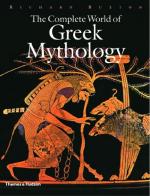|
This section contains 11,667 words (approx. 39 pages at 300 words per page) |

|
SOURCE: Gender and Immortality: Heroines in Ancient Greek Myth and Cult, Princeton University Press, 1997, 269 p.
In the following essay, Lyons argues that archaic texts, including the works of Homer and Hesiod, include a feminine form of the idea of the "hero." Lyons reviews the traditional criteria used to identify heroes in texts, applies the same criteria to heroines, and identifies several heroines that satisfy those qualifications.
"Hero" has no feminine gender in the age of heroes.
—M. I. Finley
What, If Anything, Is a Heroine?
The daunting judgment of a distinguished ancient historian that "'hero' has no feminine gender in the age of heroes" might appear to call into question the very phenomenon I propose to study here: heroines in ancient Greek myth and cult.1 If there is no word for the female counterpart to the hero in the earliest times, how can we speak of the myths...
|
This section contains 11,667 words (approx. 39 pages at 300 words per page) |

|


